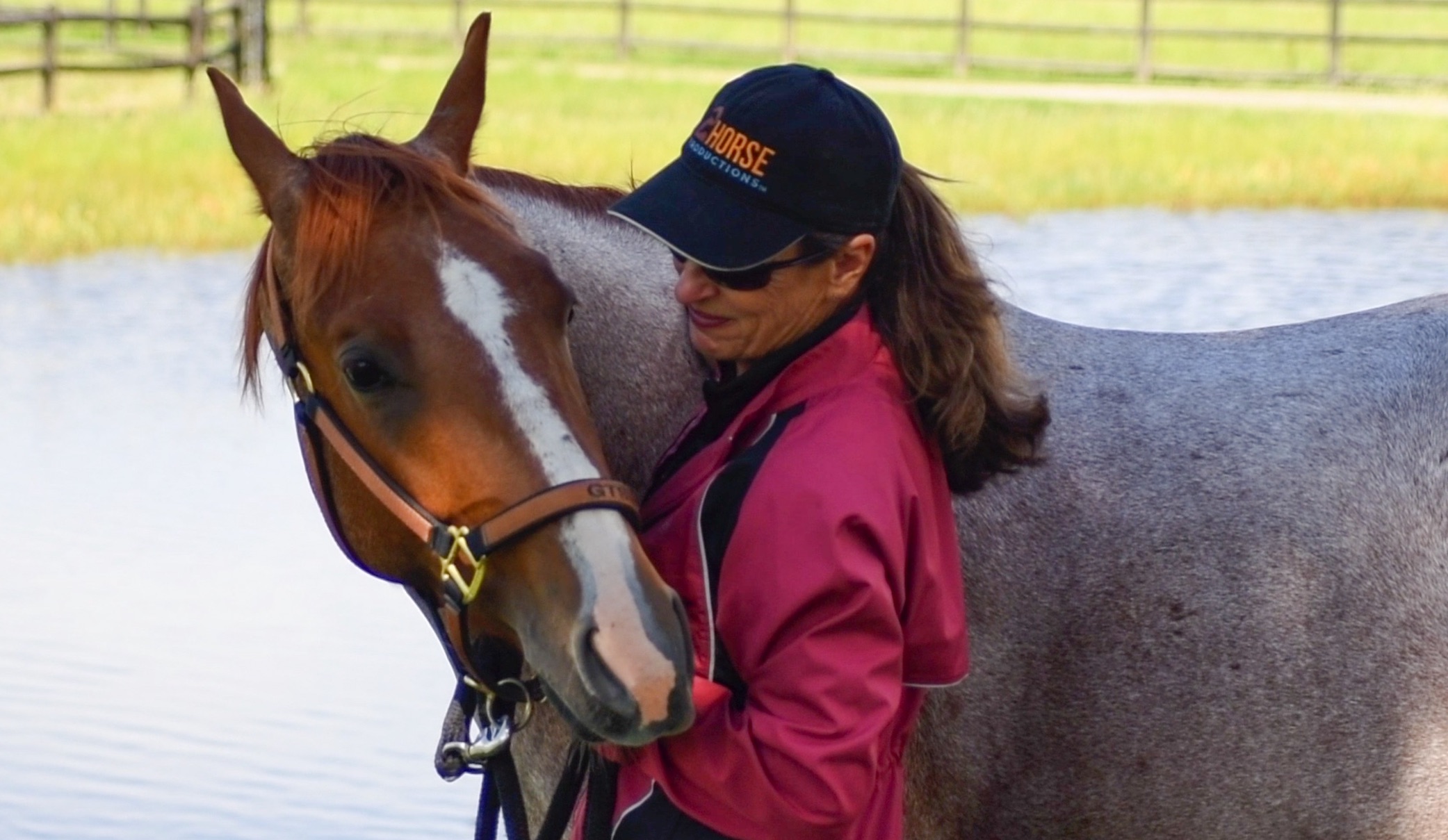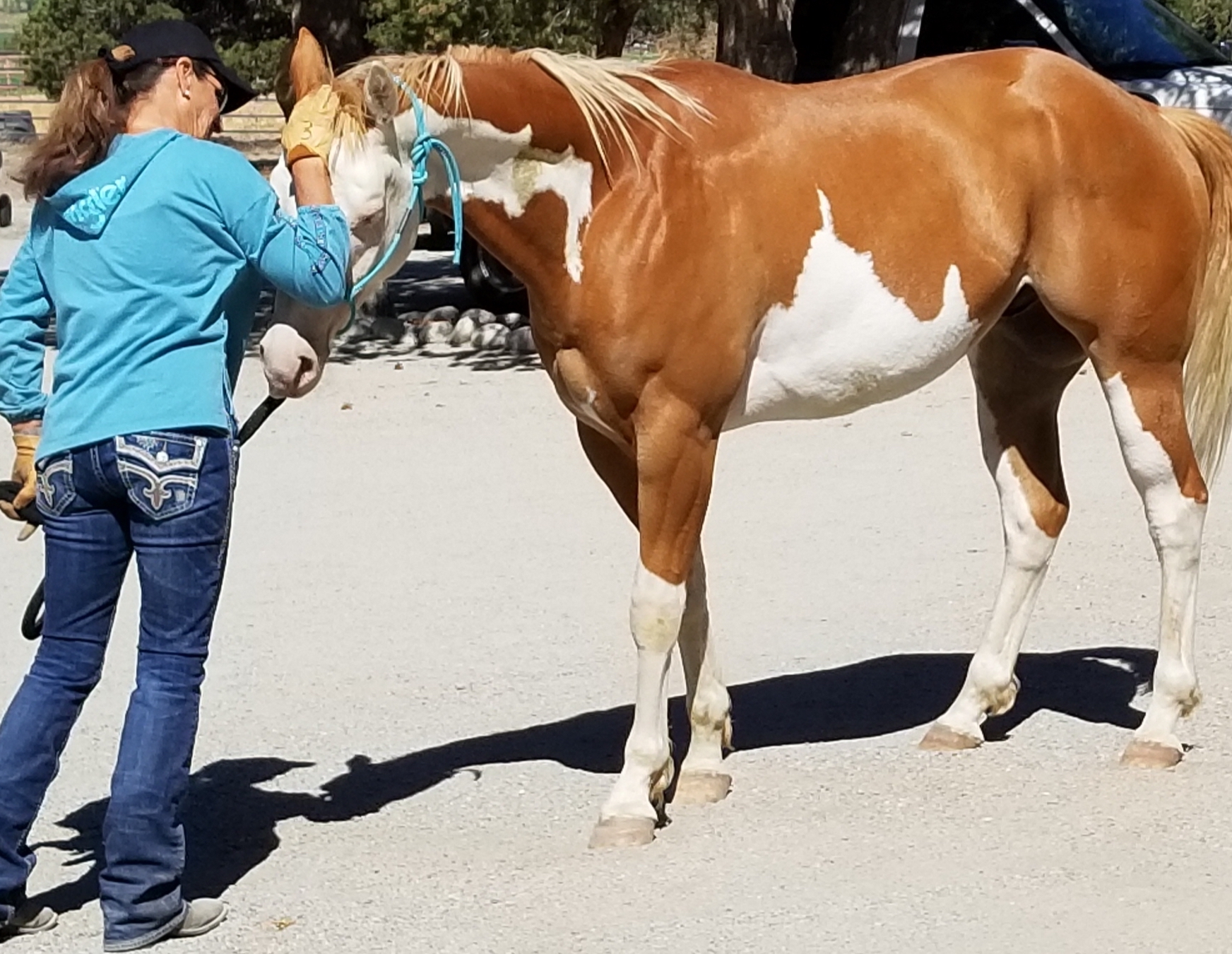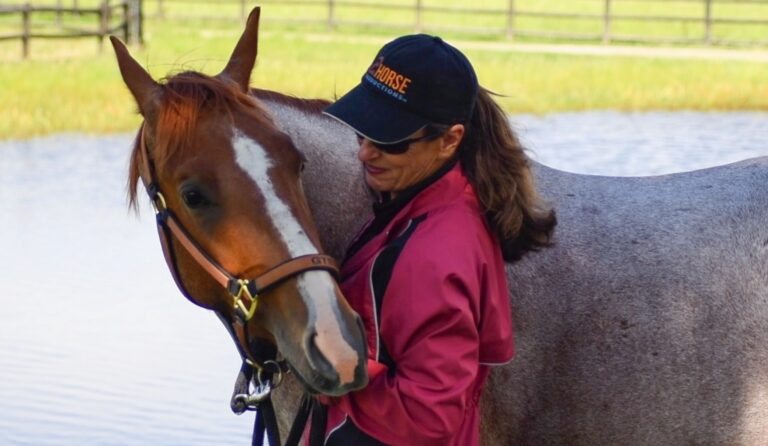
Excessive stress may cause us to behave in excessive methods. The strain of overwhelming anxiousness can hobble our pondering, resulting in irrational actions that simply make issues worse.
That causes extra stress, and the cycle continues.
You recognize what I imply.
It’s the identical for a horse. What a horse or human wants at that hectic level is a option to relax, to return again to the self and discover a option to a extra productive state of mind.
At one among her educating classes, clinician Julie Goodnight met a horse that reminded her what it’s wish to really feel utterly, completely wired.
“He was a large number,” she recollects of the gelding. “Pawing, stomping, head-butting his handler, screaming on the prime of his lungs, tossing his nostril within the air, hurling himself to the suitable after which left, bouncing off the top of the lead.”
As his proprietor struggled to comprise him, her face confirmed shock and embarrassment.
“He’s not usually like this!” she informed Julie. “After I journey him at house, he’s completely calm and does all the pieces I ask.” But it surely was the gelding’s first journey away from house—and his pasture-mate.
“I’ve had him for only some months,” the lady went on. “He got here from a rescue, so I don’t know a lot about his historical past. He might’ve been abused.”
Julie might see deep strains of fear-sweat across the gelding’s eyes, regardless of the crisp mountain air that morning.
“This horse had forgotten all the pieces he knew about his coaching,” she says. “He was getting angrier and extra annoyed by the minute, crying out for assist in the one approach he knew how.”
What the horse wanted first was a option to return to feeling secure and safe.
“Solely when his thoughts was calm and relaxed would he be able to studying and rising,” Julie explains, including that the identical is true of people, as properly.
“When our personal minds are in a state of stress and turmoil, it’s arduous to get any clear pondering accomplished.”
I’ll vouch for that!
[RELATED: How to de-stress with horses.]
The clinician requested to take management of the gelding for a second. She knew what would convey him aid.
“It took simply 10 to fifteen minutes of guiding his power—directing him the place to go, how briskly to get there, how you can act within the course of—to calm him down. I offered him with construction, steering, and reward—making all the selections for him so he didn’t need to suppose.”
Then, when the horse started to melt and are available again to himself, the world began to make sense to him once more.
The Final Information for Horses in Want: Care, Coaching, and Rehabilitation for Rescues, Adoptions, and Horses in Transition
Joey: How a Blind Rescue Horse Helped Others Study to See
Merchandise we characteristic have been chosen by our editorial workers. If you happen to make a purchase order utilizing the hyperlinks included, we might earn a fee. For extra info click on right here.
[RELATED: Julie’s ‘eureka moment’ in horse training.]

Julie’s story made me take into consideration how I reply to stress in my very own life. So long as I keep centered on what’s upsetting me, I keep locked in a swirl of hysteria.
However after I flip my focus to some routine factor—an earthly every day process in the home or barn—I can discover aid. I can chill out into no matter I’m doing as a result of I don’t have to consider it. And after I do chill out, it breaks the fixation of no matter upset me, and I can start to suppose it by extra calmly and rationally.
I attempt to bear in mind this after I’m coping with others who’re upset, too. That’s, don’t give attention to the difficulty at hand straight off the bat. As an alternative, create a bit of spot of normalcy to present the individual’s thoughts an opportunity to unclench earlier than any problem-solving begins.
I believe that is why the British are so keen on a cup of tea, provided at any difficult juncture. It’s like wiping the slate clear, earlier than addressing the difficulty at hand.
People and horses profit from the identical technique.
“Horses are emotional animals, maybe much more emotional than people,” observes Julie. “Once they’ve reached their restrict and their feelings boil over, it may be a scary, daunting problem for us. “However what horses want at that second is to be understood. They want kindness, endurance, and a launch of strain.”
That understanding and launch from strain is one thing you possibly can present to your horse, for your self, and to your family and friends…every time stress ranges soar.
[MORE FROM JULIE: Train your horse to ‘stand still and chill.’]







